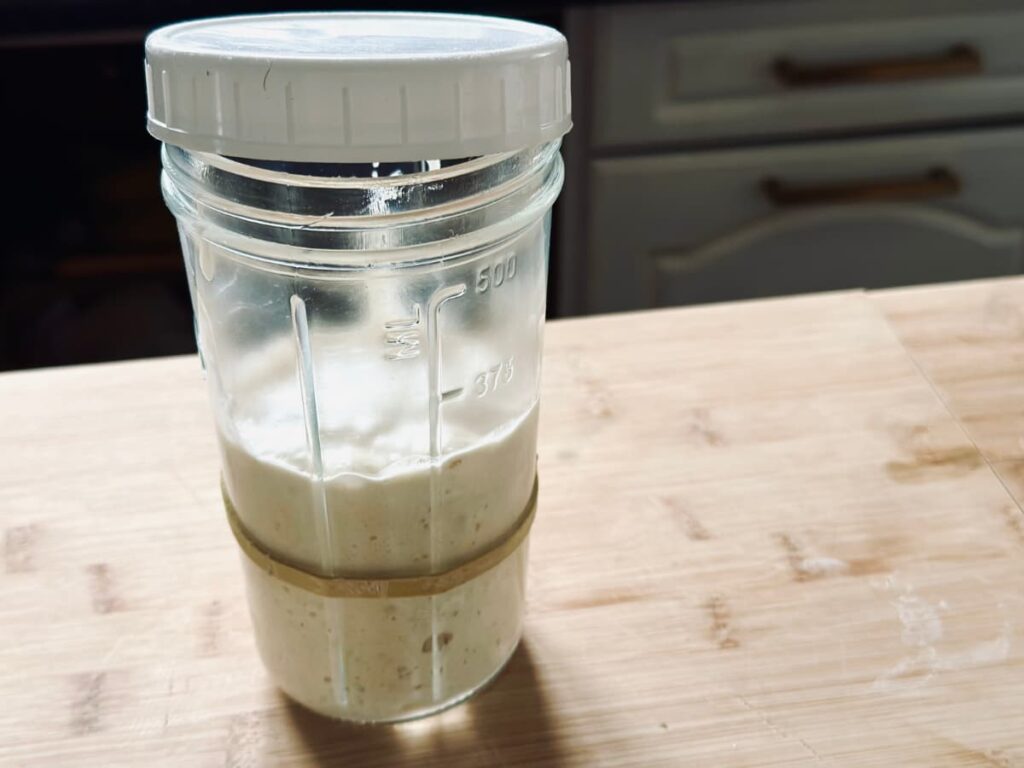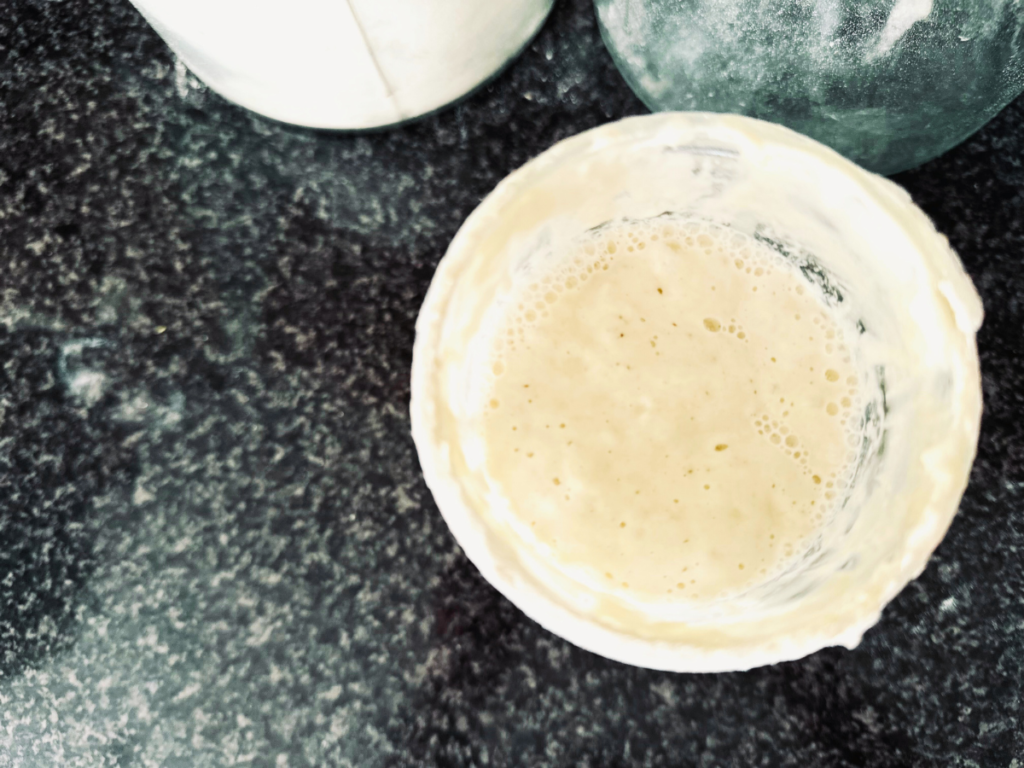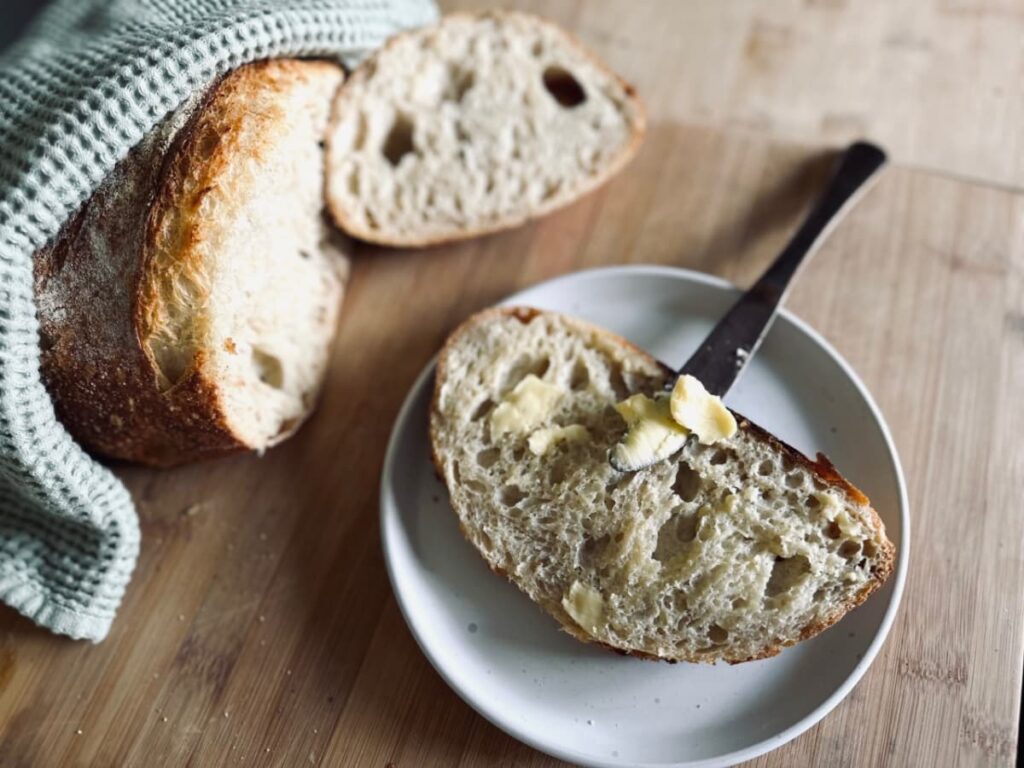We hear about sourdough all the time, but what makes it so great? Well, a lot, actually, so today lets take a look at just 7 of the benefits of Sourdough

So what all the fuss about?
Last week we started a series called Sourdough: The Basics and we looked at what the sourdough process entails. Take a look at that post here.
A lot of people have heard of it, and maybe even tried it for themselves. Lots know the ‘what’ but even more important is the ‘why’.
Why Sourdough?
Long before supermarkets came on the scene, (not actually that long ago in historic terms, the first supermarket appeared in the UK in 1948, less than 100 years ago!) sourdough was THE way to make leavened bread.
It is a process that catches wild yeast and enzymes from the environment using a mix of flour and water, and harnesses them to make the bread product rise, by ingesting the starches and carbohydrates in the flour and giving off the gases that create lift.
So lets dive in and take a look at why this age old method is so beneficial!

7 Benefits of Sourdough
1. It’s easier to digest
Part of the active work of the sourdough starter is that it begins to breakdown the starches and carbohydrates in the flour as it ferments. This means that these friendly bacteria and wild yeasts are beginning the digestion process before we consume the product!
When we then eat the sourdough food, our gut doesn’t have to work as hard to digest it, meaning it’s gentler on our tummies.
2. It’s more nutritious
Leading on from point # 1, because some of the digestion has already been started during the fermentation process, it means that more of the nutrients in the food are readily available for our bodies to absorb.
As flour is made from usually wheat, it contains the naturally occurring phytic acid. This is a protective enzyme in the grain that helps the seed to germinate and absorb nutrients from the soil when planted. However, since we want to grind and eat this seed, we don’t want that enzyme to kick in. We want to unlock the nutrients in the wheat.
Long fermentation, as in the type we create with the sourdough, breaks down this enzyme, unlocking those nutrients and allowing our digestive track to absorb them without fighting to do so. It means that the helpful bacteria in our gut has a helping hand to make the most of what we eat.
3. It is less likely to spike blood sugar levels
The long fermentation process of sourdough means that the amount of soluble fibre available to the body is increased and so the glycaemic index (the rate at which carbohydrates are broken down and delivered to the blood stream) is low.
Fibre helps to slow down the release of carbohydrates into the bloodstream. This means that sourdough bread should not spike blood sugar as quickly or for as long as regular leavened bread.
4. It’s gut friendly
We are hearing more and more about the importance of gut health in our general wellbeing. It affects all aspects of health, from direct tummy issues to brain-fog, energy levels, immune response, and mental health and wellness.
While most of the living bacteria and enzymes are killed of during the cooking process, the job they performed during the fermentation process makes the digestion process so much easier for the millions upon billions of good bacteria in our digestive tract.
Since these friendly bacteria need food too, the more readily available fibre in the bread or baked product is amazing food for them to feast on, meaning they continue to develop and do their job.
5. It’s local and unique to you!
Even if you buy one from someone else, the very nature of a sourdough starter is that it catches wild yeast and enzymes from the local environment, including your own house. While the starter culture has lots of commonalities to all other starters, the exact make up depends on a multitude of things. These include
- the type of flour you use,
- the water quality,
- the hydration, the temperature it’s kept at,
- whether it’s kept near other ferments
- and of course, the age.
All of this creates a beautifully unique product, and means there are plenty of areas to troubleshoot if something goes wrong.
6. Fewer preservatives
Just as fermenting vegetables has been a way to preserve food for centuries, the same kind of bacteria is present in long fermented sourdough products. This gives less chance for the bacteria that cause spoilage to grow, and means other chemical preservatives are not necessary.
This matters, because if you look at the ingredients in a branded store bough loaf of bread:
- Wholemeal Flour (Wheat), Water, Yeast, Wheat Protein, Salt, Soya Flour, Wheat Flour (with added Calcium, Iron, Niacin, Thiamin), Vegetable Oil (Palm
- Rapeseed), Emulsifiers: E471, E472e, Preservative: E282, Flour Treatment Agent: Ascorbic Acid, This product contains 61% wholegrains from wholemeal
- Flour Contains Soya, Contains Wheat Suitable for Vegetarians; Suitable for Vegans; Kosher
This is drastically different to the flour, water, and salt that sourdough requires.
I know this is expected nowadays, that bread lasts, but have you ever thought about why it lasts?! because it is full of this!
Now, of course the quality of your flour matters, but 3 ingredients, plus some time and care, and you have healthy bread that lasts. We seem to have forgotten this for the sake of convenience.
7. It tastes good!
Of course this is a really big benefit to eating sourdough! There are certain things in life that we do but don’t enjoy. There are foods we eat purely because they do us good. (I’m particularly thinking of my husband mixing his veggies into other things because he’s not keen.. :))
Sourdough is NOT one of those things.
The acids produced during fermentation produce a tang that adds a delicious depth of flavour to most any baked good. I have to say, it has become a preference in our family now over regular baking.
The maturity and the stage at which the starter is used after feeding has an impact on the sourness of the finished product. This means though, that it can be adjusted to suit your preference.
This makes it a great tool in baking for a family
So as you can see, there are plenty of reasons to dive into sourdough. We have an insurance policy against the type of empty shelves we have seen in the past few years. We can join the long line of humans who have utilised this natural method of baking and enjoy great tasting food!
If this has inspired you to bake with sourdough, check out our tutorial on how to make a sourdough starter here
Check out our easy sourdough bread recipe here

Find out what sourdough discard is and what you can do with it here
And here are some sourdough recipes we think you’ll love!
Quick Sourdough Discard Waffles
Strawberry Sourdough Discard Scones
- Sourdough Digestibility study – National Library of Medicine


This has inspired me to get baking again! Thank you!
Aww that’s great news! What’s your go to recipe? x
This is full of such great and helpful information! Thanks!!
Thank you! Hope it helps x
Great info, thank you for sharing!
My pleasure! I love talking about why sourdough is so great! x
Love all the great information! So many good things here!
Thank you! What’s your favourite thing about it? x
I’m so glad I’ve learned to love eating and making sourdough. The benefits & the flavor are awesome! Thanks for sharing this list.
It can be an acquired taste, can’t it!! 😀 It’s worth the effort though, I firmly believe. x
Yes! This is why I do sourdough bread for my family, so many delicious benefits! Didn’t know that it was less likely to spike blood sugar, that’s great!
And the fact that it’s so darn tasty really seals the deal, doesn’t it!! hehe x
Just fed my starter last night! I need to get back into regular bread making, I love it so much!
Aww great!! What’s it’s name? Love finding out what people name them!
I love that sourdough is easier to digest! I love baking with it!
All helps when it comes to our gut, doesn’t it. What’s your signature recipe? x
Hope it helps!! x
Wow! I’d love to know your favourite recipes, let me absorb some of your knowledge!! I’m always looking to learn!! x